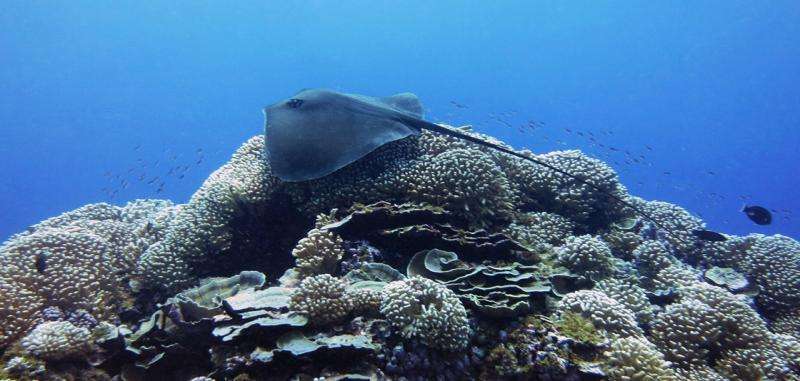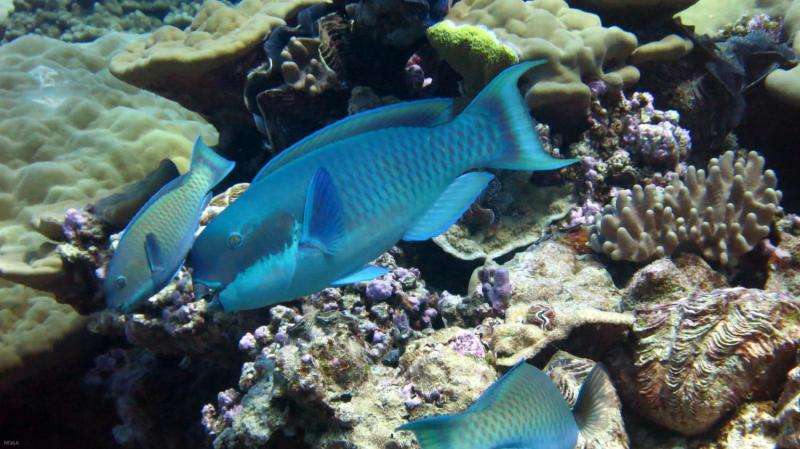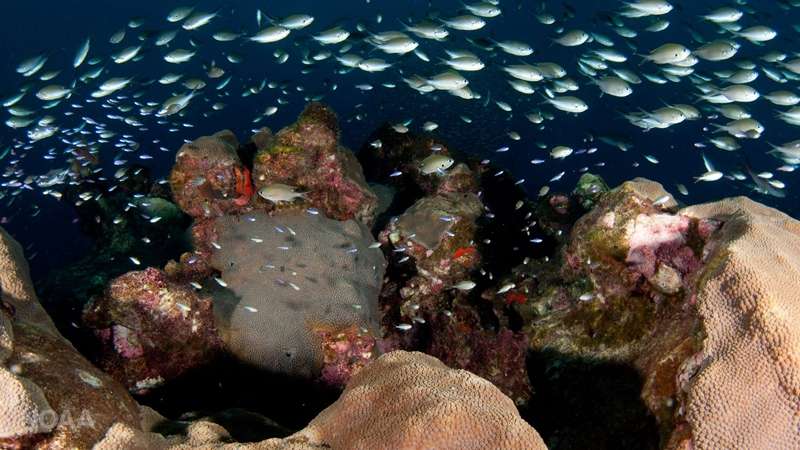Promoting resilient coral reefs in a changing climate

The third and longest global coral bleaching event on record started in 2014 and continues to damage reefs around the globe. While it's true coral reef ecosystems have been knocked down, they have certainly not been knocked out. It is not too late to conserve coral reef ecosystems.
Healthy coral reefs are one of the most diverse and valuable ecosystems on Earth. Here at NOAA, it's Corals Week—a week in which we celebrate these remarkable ecosystems.
Covering only one percent of the planet, they are the home to 25 percent of marine species and upwards of 4 billion people rely on coral reefs for the fish and shellfish they eat. They provide billions of dollars in other economic and environmental services, such coastal protection, tourism and pharmaceuticals.
NOAA protects both deep and shallow corals in the Atlantic and Pacific. This year alone saw the expansion of Papahānaumokuākea Marine National Monument—more than doubling in size—and the creation of Northeast Canyons and Seamounts Marine National Monument.
Coral reefs face serious threats, mainly from the effects of overfishing, pollution from the land, and the twin insults of global climate change—warming and increasingly acidic ocean waters—making this undoubtedly the greatest global threat. However, NOAA's Coral Reef Conservation Program has boots on the ground and fins in the water to help communities manage coral reef ecosystems for resilience.

A resilient coral reef is one that can either resist a large-scale stressful event, such as bleaching, or recover from it. Efforts to promote reef resilience are yielding powerful results.
In Maui, the community came together to protect herbivorous fish that eat algae and control its growth on the reef. Now, several years later, algal cover is down, the numbers of fish are up, and the reef is making a comeback.
In Puerto Rico, more than 40 coffee farms are now part of a shade-grown coffee crop initiative that tackles the region's sediment and agricultural runoff issues. Instead of growing coffee on bare hillsides, forests ideal for shade-grown coffee are being restored. NOAA also supports communities in American Samoa, Guam and the Commonwealth of the Northern Mariana Islands where they are planting rain gardens along the coasts and revegetating hillsides with native plants to reduce sediment and pollutants from reaching the sea.

Another NOAA-supported effort underway is growing individual corals in nurseries to restore damaged ecosystems. In the past, coral restoration took place in response to acute disturbances, such as a ship grounding or large storm. However, coral nurseries are increasingly used as a tool to address overall reef decline. In fact, roughly 30,000 coral fragments grown in coral nurseries in Florida, U.S. Virgin Islands and Puerto Rico were transplanted to restore reefs in those regions over the past decade.
Coral reef ecosystems will change as a result of the pressures they are under, but nature perseveres. Efforts to move the needle of conservation in a positive direction will take creativity, commitment, endurance, dedication, and community engagement. The steps we take today to address the threats they face, restore habitat and further the science that fuels effective conservation, will ultimately give these amazing ecosystems a fighting chance. And that's what gives me hope for coral reefs.
Provided by NOAA Headquarters




















